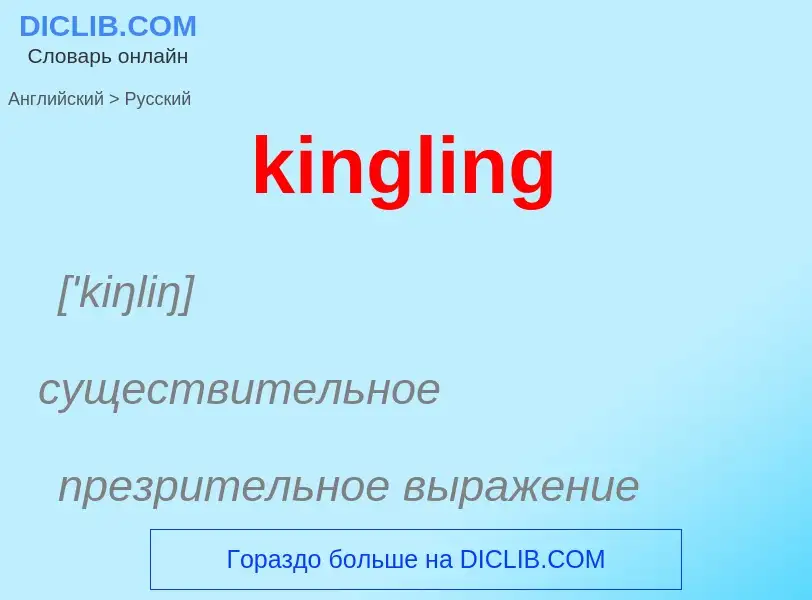Traducción y análisis de palabras por inteligencia artificial ChatGPT
En esta página puede obtener un análisis detallado de una palabra o frase, producido utilizando la mejor tecnología de inteligencia artificial hasta la fecha:
- cómo se usa la palabra
- frecuencia de uso
- se utiliza con más frecuencia en el habla oral o escrita
- opciones de traducción
- ejemplos de uso (varias frases con traducción)
- etimología
kingling - traducción al ruso
['kiŋliŋ]
существительное
презрительное выражение
царёк
Wikipedia

A park is an area of natural, semi-natural or planted space set aside for human enjoyment and recreation or for the protection of wildlife or natural habitats. Urban parks are green spaces set aside for recreation inside towns and cities. National parks and country parks are green spaces used for recreation in the countryside. State parks and provincial parks are administered by sub-national government states and agencies. Parks may consist of grassy areas, rocks, soil and trees, but may also contain buildings and other artifacts such as monuments, fountains or playground structures. Many parks have fields for playing sports such as baseball and football, and paved areas for games such as basketball. Many parks have trails for walking, biking and other activities. Some parks are built adjacent to bodies of water or watercourses and may comprise a beach or boat dock area. Urban parks often have benches for sitting and may contain picnic tables and barbecue grills.
The largest parks can be vast natural areas of hundreds of thousands of square kilometers (or square miles), with abundant wildlife and natural features such as mountains and rivers. In many large parks, camping in tents is allowed with a permit. Many natural parks are protected by law, and users may have to follow restrictions (e.g. rules against open fires or bringing in glass bottles). Large national and sub-national parks are typically overseen by a park ranger. Large parks may have areas for canoeing and hiking in the warmer months and, in some northern hemisphere countries, cross-country skiing and snowshoeing in colder months. There are also amusement parks that have live shows, fairground rides, refreshments, and games of chance or skill.


![[[Hatanpää Park]] in [[Tampere]], [[Finland]] [[Hatanpää Park]] in [[Tampere]], [[Finland]]](https://commons.wikimedia.org/wiki/Special:FilePath/Hatanpää Arboretum 2020.jpg?width=200)

![Burnside Skatepark in [[Portland, Oregon]] is one of the world's most recognizable skateparks. Burnside Skatepark in [[Portland, Oregon]] is one of the world's most recognizable skateparks.](https://commons.wikimedia.org/wiki/Special:FilePath/Portlandskate.jpg?width=200)
![[[Yoyogi Park]] is a large urban park in [[Tokyo]]. [[Yoyogi Park]] is a large urban park in [[Tokyo]].](https://commons.wikimedia.org/wiki/Special:FilePath/Yoyogi Park from Hyatt.jpg?width=200)

.jpg?width=200)
